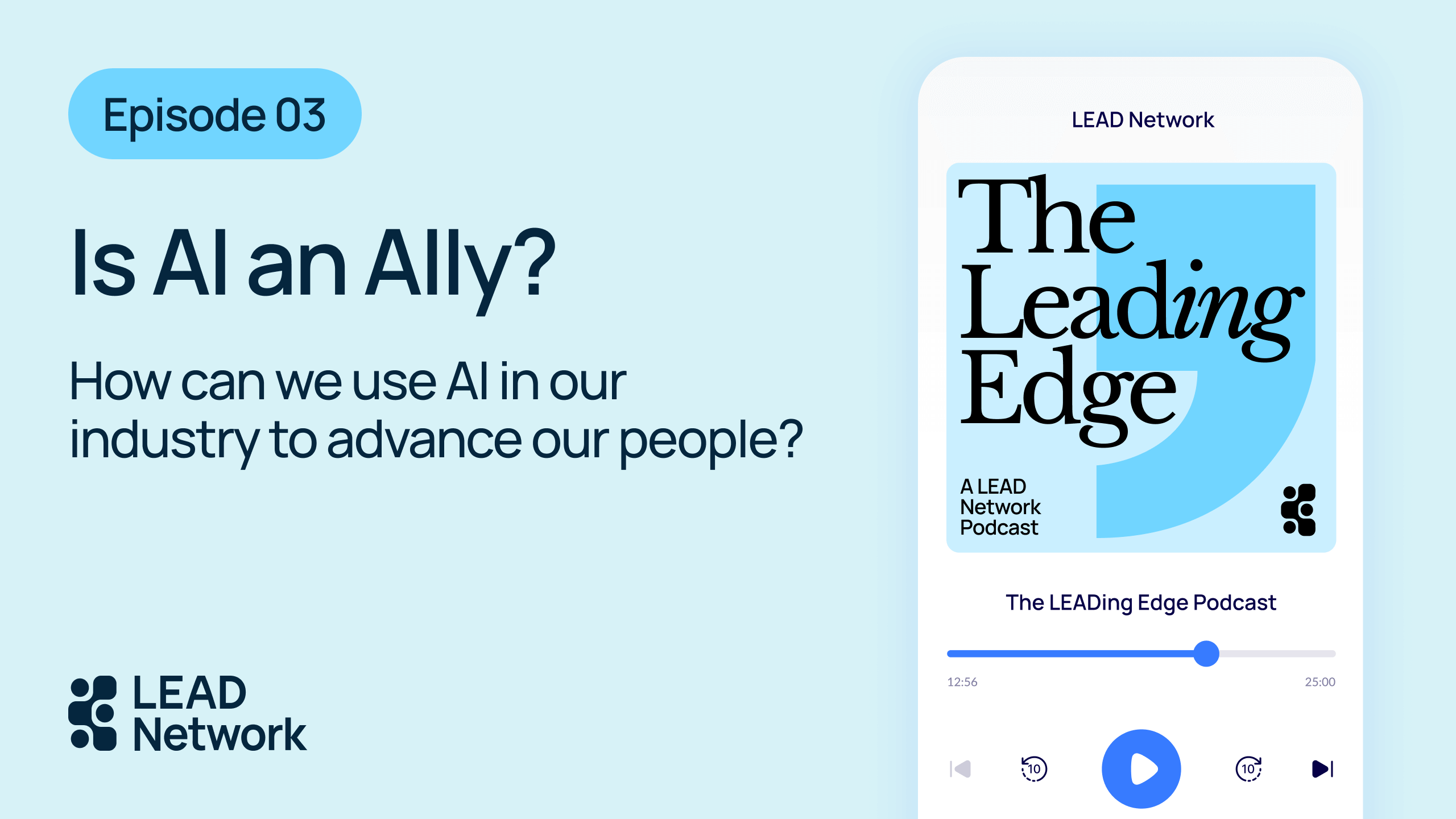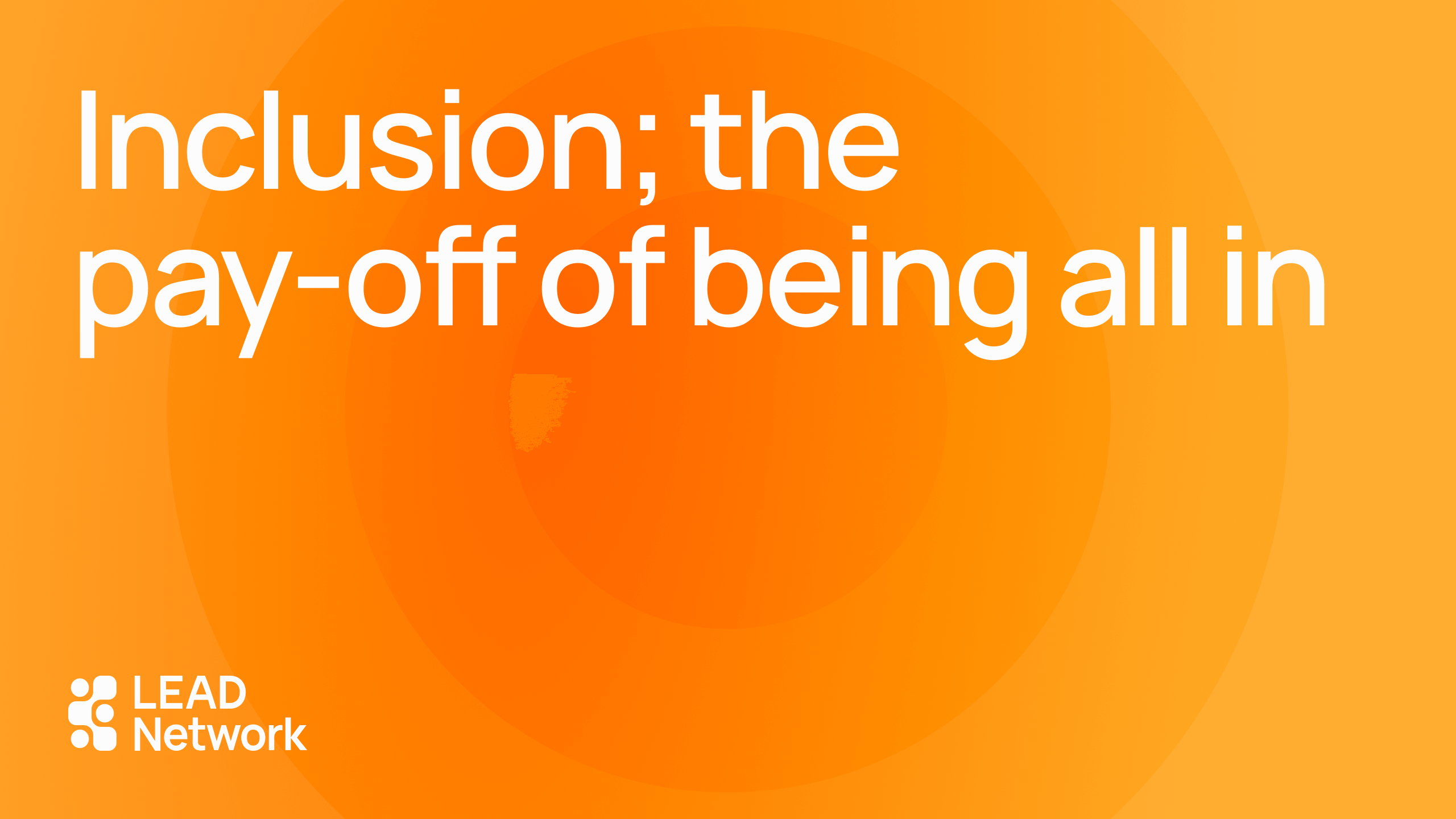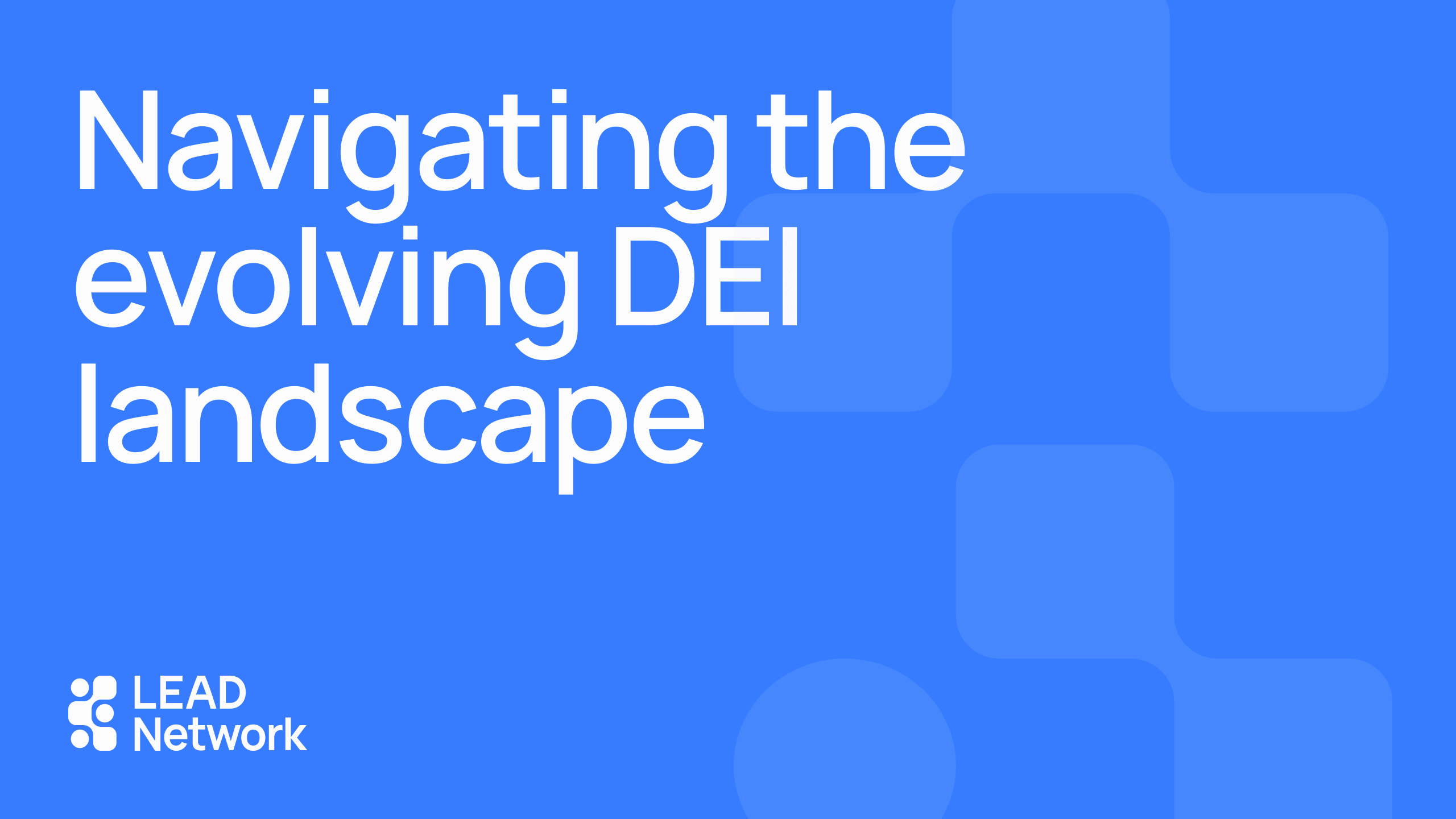The LEADing Edge: Is AI an ally?

Artificial intelligence (AI) is reshaping the world as we know it, and every industry must stay on top of these developments to ensure they’re able to adapt, and to use AI to the best of their advantage. The Consumer Goods and Retail industry is no different: AI can boost everything from supply chain management to supporting quality control operations. That being said, as with any new technology that is widely adopted, it’s critical to ensure that we understand how bias is built into AI, and the measures we need to take to mitigate this.
The latest episode of LEAD Network’s podcast, The LEADing Edge, explores exactly this. Hosts Allyson Zimmermann and Sarah McGowan investigate questions including:
- How can we use AI in our industry to advance our people?
- How can we channel its power and make it a precious ally?
- And if there are some blind spots, how can we address them?
We are pleased to welcome guests Arta Statovci, AI strategy expert and LEAD Network NextGen Chapter Board member, Teuta Sahatqija, Founder and CEO of Appoint Group, and James Winters, AI Management Consultant and AI governance officer at Deeper Insights.
How AI can support the Consumer Goods and Retail industry
AI is relatively new on the scene, but it has already made its mark in the Consumer Goods and Retail industry, as companies start to leverage the technology to increase their competitive advantage. “AI algorithms can forecast inventory needs and identify patterns around order fulfilment,” explains Allyson Zimmermann. “They can also optimise logistics and reduce fuel consumption, ultimately allowing for lower carbon emissions and a more efficient use of resources.”
It’s also important to recognise that while one of the major concerns about AI is that it will replace the need for humans to carry out jobs, the reality is a little different. “The power of AI, albeit immense and industry changing, is still complementary to our essential human skills as of today,” says Sarah McGowan. There’s no way of knowing for sure how AI will develop in the future, and it’s important that we take appropriate measures today to be ready for a variety of different outcomes – especially as, according to the Institute for Public Policy Research, female workers are 40 percent more likely to have their tasks replaced by AI.
Bias in Artificial Intelligence
To fully understand possible bias within AI, it’s important to remember how the technology works. “AI us just the mirror of who we are as people, as humanity, as a society,” says Arta Statovici. “If the technology is learning from humans and mimicking humans, the output will be the same.” Teuta Sahatqija echoes this thought: “In AI, it’s garbage in, garbage out.”
Essentially, AI can’t do better if we don’t do better first. As James Winters explains: “If data is biased and if the correct controls and mitigation strategies aren’t put in place, then any negative effects that have happened historically will continue to happen at a larger rate as well because it’s utilising that historic data, and then making so many more decisions than any individual person could.”
He provides an example to illustrate how this bias might work in reality: “A bank may lend to particular groups at a higher rate, and that’ll be based on individual bias, but then that transforms into the data. If an AI system is trained on that data and then is used to make decisions, it may then lend to a thousand, two thousand, a hundred thousand more people. And if you’re not monitoring the impact of that, then if adoption keeps increasing, then it will be huge.”
What’s next?
The first step in mitigating bias in AI is realising that we can all play a part – especially those of us who work in the DEI space. From spending time upskilling on AI tools we might soon be using on a daily basis, to understanding how the technology impacts different teams within our company, there are lots of ways to get started. “We must focus on creating systems that are transparent, ethical, and inclusive,” says Sarah McGowan. “By using diverse and representative data, we can train AI to provide fairer and more personalised customer experiences. We should invest in education to ensure that AI solutions evolve responsibly. We should encourage open source development and foster a culture of innovation that will benefit businesses, consumers, and employees.”
Begin by learning a little more about AI in the Consumer Goods and Retail Industry by listening to the full episode on Apple or Spotify. To stay up to date with our latest podcast episodes, please subscribe on Apple, Spotify, or wherever you get your podcasts. If you’re not yet a member of LEAD Network, you can join for free here.
Share this article
More articles
February 17, 2025
November 3, 2024
October 17, 2024



